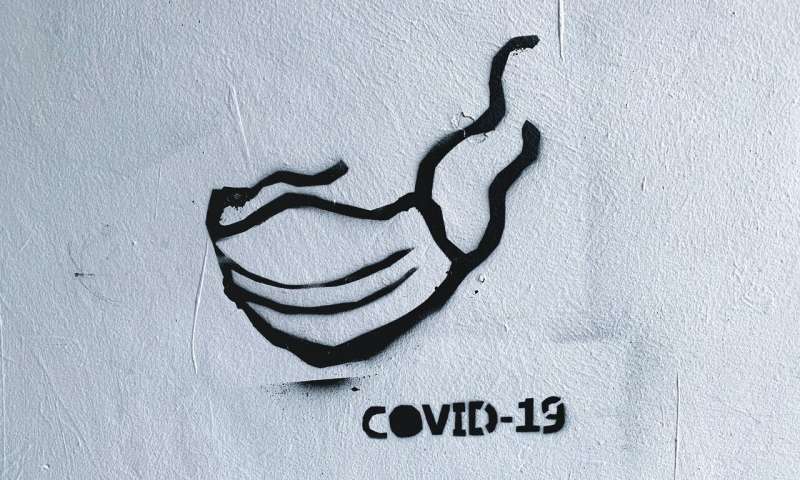July 15, 2020 report
Hallmark of severe COVID-19 patients identified

A large team of researchers with members affiliated with a host of institutions in France has identified what they believe is a hallmark of severe COVID-19 patients. In their paper published in the journal Science, the group describes their study of 50 COVID-19 patients in France and what they learned from them.
The global pandemic has led medical scientists around the world to study the SARS-CoV-2 virus and associated infections. One characteristic of such infections is the difference in degree of symptoms: some people are asymptomatic, while others find themselves unable to breathe. Researchers are hoping that if the reason for different reactions to infection can be found, a means of treating people with severe infections may soon follow. In this new effort, the researchers studied 50 patients in French hospitals with varying symptoms—from those with a minor cough to those on ventilators. Their goal was to find a common factor in the patients with severe symptoms.
In analyzing blood, tissue, immune cells and other samples from the patients, the researchers came upon what they believe is a signature for people with severe infections—a combination of an interferon response deficiency and exacerbated inflammation. They suggest the signature may represent a hallmark for severely ill COVID-19 patients. The researchers suggest their findings could lead to therapies that boost interferon response to an infection while also reducing inflammation.
More specifically, the researchers found that critically ill patients had a deficiency in the response of type I interferons—a kind of protein that is used by the immune system to fight infections. In addition, there were higher than normal levels of proinflammatory signaling. Together, the two responses left patients with little ammunition to fight their infections. The work builds on studies by other researchers finding that interferon signaling in infected areas may play a role in mitigating disease progression. Such work has shown that duration, timing and location of interferon exposure to the virus are critical factors that appear to underlie the degree of success with current therapies.
More information: Jérôme Hadjadj et al, Impaired type I interferon activity and inflammatory responses in severe COVID-19 patients, Science (2020). DOI: 10.1126/science.abc6027
© 2020 Science X Network



















